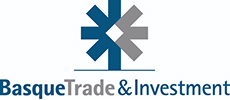Italy
The business relationship between the Italian market and the Basque Country has been traditionally strong, noted for trading in key sectors such as the manufacturing and automotive industries, and technology. Italy is one of the Basque Country’s trade partners, driven by the similar economic structures and a strong presence of small and medium-sized enterprises in both regions. Basque companies have found opportunities on the Italian market to export energy and technological products; partnerships in technological innovation and development will further strengthen the ties between both markets.
Italy, a key trade partner for Basque companies
Italia holds an important position in the global economy, as the eighth largest in the world by nominal GDP, and is a powerhouse in sectors such as manufacturing, design, fashion and machinery manufacturing. In terms of trade, it is one of the main exporters of goods such as vehicles, luxury items, food and machinery. Italy is a key member of the European Union, the G7, and NATO, which gives it significant influence in economic and diplomatic international affairs. Despite facing domestic challenges such as the public debt and the slowing down of growth, Italy continues to be an influential player in global political decision making and in international trade, particularly within the European context.
Ainara Isasa
Director of Basque Trade & Investment Italy
BASQUE TRADE & INVESTMENT ITALIA
Via Santa Maria Segreta, 6
20123 Milano Italia
* Office hours:
Monday to Thursday: 7.30 a.m. to 4.00 p.m.
Fridays: 8.00 a.m. to 1.00 p.m.

